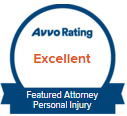The third and final installment of 21 Questions with Vance Andrus
Vance Andrus: Lawyer; Co-founder, Hipp Tripper
From the book, 21 Questions for 21 Millionaires: How Ordinary People Create Extraordinary Success, By Brandon Pipkin.
B: Was your journey to millionaire easy or hard?
It was no harder than anyone else’s journey who gets up and goes to work.
B: You believed all along you’d be successful in whatever you did, right?
Yes, but I always had to seek approval of others. I’ve been told that one of reasons that I work so hard is simply because people praise me. You praise me, I’ll keep going, I won’t quit. They say some people work for the money. I work for the praise.
B: Who or what inspired you throughout your life?
The ‘what’ would be fear of being afraid and the restlessness of my soul inspired me to keep going forward. The ‘what’ would be all the people in my life who demonstrated to me that hard work and kindness can be rewarding. It isn’t always. It rains on the good and bad alike.
B: How did you balance time with the family?
You have to make conscious choices to do so. ‘The law is a jealous mistress.’ That’s a phrase in our business. She will seduce you, especially if you get a lot of feedback from the law that affirms. ‘You’re so good, you’re so smart, look at all the money you’re making.’ You’re getting that from your profession. That call is there. You have to consciously fight it so as not to become a workaholic.
B: If you were to capsulize it, how would you say you got where you are today?
Persistence. Learning new skills and talents and then applying them constantly. And generosity.
My mother, an old battleax Catholic, came to me one semester on a Saturday morning and drug me, hung over, out of bed at my dorm. She said said, “I’m worried about you. My intuition says you’ve been partying with those fraternity boys too much and I am really worried about you.”
“Oh mom, don’t worry. I’ll be OK.”
That semester I had a 4.0. I brought that home and showed it to her and said, “Mom, I told you not to worry, I made a 4.0.”
She said? “Imagine how much you would have learned had you really studied.”
That story epitomizes the kind of drive that all of the kids were under in our household, so I’m sure that has a lot to do with it.
B: Was there a system of success that you had in mind that you followed, or did you follow your gut and your heart as you went along?
My only system was to be aware of my surroundings at time. Be aware of where you are, what’s going on, what the opportunities are. Beyond that it was all following my heart and my gut.
B: What do you mean being aware of the opportunities around you?
I don’t think opportunity knocks once. I think opportunity is banging on the front door, the back door, the roof, and the walls and multiple opportunities are right there. We have to lift the veil of tears to see them, so you need to be aware what’s going on. Ask questions of yourself and others.
I’m constantly curious. I’ll be talking to a CPA and he’ll say, ‘I’m selling so and so’s business.’ And I’ll ask, ‘What kind of business is that? What does he do? They buy them and they paint them orange and then they sell them. That’s all they do? Oh, no, they also have to repair them and repaint. OK, fine.’
Simply ask questions of other people constantly; ‘What does that do?’ It leads to more knowledge and the better your knowledge base the more you’ll be able to observe opportunity knocking and the better choices you get to make.
B: What are your greatest successes in life?
First, being smart enough to marry my wife. Second, raising four wonderful, loving children. Third, being able to practice law and help people. And then fourth, amusing myself.
B: By amusing you’re not talking about entertaining yourself through life. You’re talking about those different interests, different careers, different things that you’ve always taken yourself to the next level with.
Right, that’s exactly it.
B: Did you have written down goals along this journey?
I never did. I always just stayed awake and alive.
Here’s an example:
I was walking across campus and I ran into my acquaintance Edwin Price. “Hey, Edwin, what’s going on?”
Edwin: “Nothing much, Vance. Are you getting ready to graduate?”
Vance: “Yep, I am. What about the draft? Did you get a draft number?” – Now what is that? Being aware, asking questions.
Edwin: “Yeah, I’m number 22.”
Vance: “Oh, man, what are you going to do?”
Edwin: “Well, Coach Blanco (the football coach under whom Edwin played) knows the coach at LSU and they talked to the Colonel over there and they got this deal. They can get me in the Army and I can then go to law school.”
Vance: “Really? Do you think there’s a spot left open?”
Edwin: “I don’t know. Do you want me to call?”
Vance: “Please.”
Edwin did. The next day I was talking to the Colonel.
Vance: “I’m Edwin’s best friend.”
Colonel: “Coach Blanco wants us to do it, we’re going to do it, son.”
There was no plan. I didn’t sit there and say, ‘I’ve got to plan how to get to law school and try not to get killed.’ I stayed awake, I stayed aware, I asked questions, and an opportunity presented itself.
Instead of making goals and trying to fill them, I just went through life finding opportunities and taking them.
B: What did you learn from your failures?
There is a speech I give to young lawyers I call ‘Andrus’ Aphorisms.’ It summarizes a lot of my philosophies.
The question is, ‘What did you learn from your failures?’ Here it is.
(Reading from Andrus Aphorisms): ‘You’re momma doesn’t live here, clean up your own mess.’ You have to be honest with yourself with respect to failures and honestly appraise to what extent were outside influences responsible versus some failure on your part.
B: If it was outside influences, to what extent did you fail to anticipate and react or act proactively to reduce or stop those outside influences from affecting your performance?
Beyond that, you just pick up and move on.
Don’t pass judgment on yourself such as, ‘I’m a bad person.’
No. Instead say, ‘I made a mistake. I didn’t see that coming. I need to get a little better because I need to go back in.’
You know you’re not going to quit, so why not just learn something?
Clean it up, that’s #1. #2, try to learn something from it.
That’s it. It’s not great philosophy there.
B: What is your passion?
Life.
Go to #8 (of Andrus’ Aphorisms): Grab Life by the Throat.
‘From the day you were old enough to walk you were faced with a choice: either you grab life by the throat and give it a shake, or life will grab you by the throat and give you a shake.’
That’s my passion.
To me it means trying to be honest with yourself and commit to trying to be successful in life, whatever that entails.
B: Did you ever have a passion for law?
There was a Charlie Brown cartoon in which Linus is saying, ‘One of the greatest burdens in life is great expectations.’ I didn’t so much have a passion for law before I became a lawyer as I had resigned myself that it was my fate. It’s only in the last 10 years that I’ve really gotten passionate about it.
B: But all along you’ve had a passion for being successful and for taking life and making the most of it?
Right.
B: So whatever you did you were going to be successful?
I was.
B: Part of that is your upbringing, part of that is you were resigned to it.
Yes, and it also has to do with playing with the cards you were dealt. It has to do with recognizing what your skills and talents are.
In high school, all I wanted to do was be a jock, and I was really a second-class athlete. I was skinny; I weight 138 pounds. My senior year we only had 21 kids on the football team.
The coach came in and with a gleam in his eye said, “As you know, Marvin went down yesterday. I have a golden opportunity for someone to play cornerback.”
I had never played cornerback, but he was staring at me and he said ‘a golden opportunity.’ I raised my hand and said I’m it. He called me in his office and said, “You’re the only one on this team smart enough to learn almost every position. Someone is going to get hurt every week and I’m going to need you to be able to play every offensive and every defensive position. Here’s the book, learn the plays this week and you’re going to be our starting cornerback on Friday.”
I played every week for 11 weeks. I played six or eight different positions, none of them particularly well; I got beaten at virtually every position. I played guard – I weighed 138 pounds. I played defensive end, I played cornerback, I played linebacker…and I lettered.
So that’s what I mean about opportunity, being aware and using the skills that you have. I wasn’t much of an athlete, but I was really bright.
B: What should people who want to be successful know?
They need to know their own personality.
Mine is a personality that works best on a team. In fact, it works best leading a team, but I’m a team guy.
You can be successful without being a team guy; I think it’s a lot harder. I think the vast majority of people who have been successful are on a team. Who’s not on a team? A brain surgeon maybe, but he’s got a team. I’m talking about a team of people who help do all of the lifting, that’s the kind of teams that I’m thinking of.
So you have to know your personality, that’s the key, and you have to be committed.
I never ever intended to replace anyone, or to even be the next so and so. I wasn’t going to be the next anybody.
B: What advice would you give to someone looking for a break in their chosen field or in life?
They asked Bear Bryant one time about luck. They said, ‘Coach, what’s the role of luck on the football field?’ He said, ‘It’s funny you’d ask that. Seems to me the better athletes I recruit, the more luck I tend to have.’
If by ‘break’ we mean a lucky break, there is no such thing. You make your luck; luck is made by people. Luck is a result of hard work and awareness.
If you work hard and you’re aware, you will spot opportunities, which will seem to be lucky to you, but there is no such thing as luck.
B: Why did you do what you did and why do you continue to do what you do?
Because it’s better than the alternative. To live an unexamined life is a waste of protoplasm and I don’t intend to do that.
B: What is success to you?
Being loved and receiving life affirmation from others.
B: What do you wish someone would ask you?
I think you have; all these questions, because one of the problems with life is that everyone thinks that they’re on an island, that they’re the only person facing these choices and these difficulties. That no one else understands and that no one else has ever been through any of that. In truth, all of us have.
When I look at an old photograph…I try to make myself appreciate that those people had the exact…same fears and hopes and aspirations that I have; exactly the same, not any different.
I think the worst thing that can happen to anyone reading this book is that they feel alone.
B: Why is that the worst thing?
Because they’re not. And all they have to do is lift the veil of tears and they’ll see that we’re out there, folks. We’re there, we’re one of you.
B: Is there a belief system that guides your life? Are you still a practicing Catholic?
I’m a non-practicing true believer in the Catholic version of God. It only guides my life in the sense that the very humanistic values that we learn from any religion, that are instilled in us in any religion, the stuff I learned in kindergarten, all those things were touchstones for me my entire life, and are actually used by me in my business endeavors.
An example is I don’t lie. I deal with very, very powerful people and a lot of them at one time. I have to be politically judicious and kiss this one and spank that one…but the one thing I don’t do is lie to anyone. Never, never, never, never.
Do I do that because I was raised as a Catholic and they told you not to do that? Probably. Do I do that because it’s really efficient to tell the truth, because as Mark Twain said you don’t have to remember what you said? Yes, probably. Do I do it because it’s very detrimental to lie because the truth will be known no matter what? Yes, that’s part of it too.
So my belief systems would be characterized is generic Christian, I think.
B: When I first called you, you said, “I don’t know that I’ve done anything special. I’ve just worked hard, which is no different than (my) maintenance man.” Tell me a little bit about that.
One of the finest people I ever met in my entire life was Howard Riddick.
Howard was a real jack-of-all-trades; he could do a little of anything. He would come out here and stay for weeks or even months at a time and we would do projects.
Howard worked harder and with more calm than I’ll ever do in two lifetimes. His life was physically and economically much harder than mine and yet he simply accepted life.
I don’t think I’ve done anything special that Howard didn’t do. My training and my education gave me an opportunity to do good for more people at one time than Howard would do, but I’m not any different. I’m certainly not any better than Howard was.
B: What’s the difference between those people who seem to be successful financially and those that aren’t? Howard was a success by the means of being happy, wasn’t he?
Oh yes. Howard was a success by every means possible.
I had more education than Howard, so I had an opportunity to be more efficient in the capitalistic system of capturing a small flow of the capital stream that Howard simply wasn’t equipped to do by his training and education. That’s the only difference.
To read more from 21 Questions for 21 Millionaires, go to http://www.21for21.com/?p=1049.

















